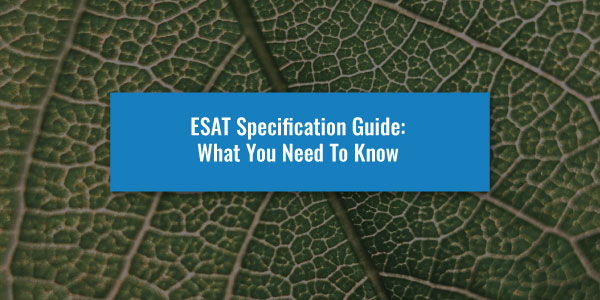Natural Sciences at Cambridge is an intensive and challenging course, but students are provided with an excellent learning environment in which to rise to this challenge.
Each course will approach the teaching of material in different ways, and you will be exposed to many different learning environments and conventions.
With the support from supervisors and Directors of Studies, you will be able to develop the most suitable way of working for you.
How Natural Science Teaching Works At Cambridge
Departments provide the structure for the Tripos, teaching in lectures and practical and examples classes; all students are members of a college which offers advice on the direction of studies and, in collaboration with the departments, the small group teaching known as supervisions.
The flexibility of Natural Sciences means you can:
- Study a range of new and familiar areas in the sciences before deciding what to specialise in.
- Discover the interconnections between apparently diverse subjects.
- Gain experience of using a range of different scientific methods.
With such an intense workload, you will need to be organised and self-disciplined to thrive in the environment.
Need help securing your place at Cambridge to study Natural Science?
We help you craft the perfect Personal Statement, achieve a highly competitive NSAA score and teach you how to Interview effectively.
Discover our Cambridge Natural Science Premium Programme by clicking the button below to enrol and triple your chances of success.
How Are Lectures Used In The Natural Science Tripos?
All nine of the subjects available to study in the first year of the Natural Science Tripos require you to attend lectures. With this being one of the only times the entire class will be together, the lectures are helpful to define the content and scope of the course.
For example, those taking Biology of Cells should expect the first four lectures they attend to introduce the course by considering the organisation of eukaryotic and prokaryotic cells, the methods used to investigate their structure and the functional significance of their sub-cellar organisation.
Lectures are scheduled between 9 am and 1 pm Monday to Saturday. All courses are lectured three times weekly, on a two-day cycle. You are expected to attend all three lectures in each subject every week – 12 lectures in all.

Lectures do not necessarily teach you everything you need to know. Instead, provide the framework for you to investigate topics further through other forms of teaching and self-directed reading.
Most lecturers will provide you with some form of handout; these do not replace the lecture bit to give you “breathing space” to engage more closely with the lecture.
Handouts come in many forms:
Complete handouts
By providing a complete overview of what the lecture will consist of, students can use the handout as a template to add their notes. This means less writing, and gives students the chance for cognitive engagement.
“Fill in the blanks”
Is the lecturer drawing to your attention the more complicated aspects of the lecture or highlighting particularly important points? These could just include key information such as complex diagrams, maps, formulae, quotations and references. These handouts ensure key information is not missed or copied incorrectly and help with note-taking whilst allowing the lecturer more flexibility in the flow of the lecture.
Lecture outline
These simply are meant to outline what is going to be covered. They are not a substitute for attending the lecture. They are provided as a study guide for quizzes and exams, for reference on the homework, and as a tool for following the lectures during class.
Whatever the form of the lecture and handout, it is essential that you take time to review and consolidate what you have learnt.
How Is Practical Work Used In The Natural Science Tripos?
Practical work, be it laboratory work, fieldwork, or examples classes, usually serves to illustrate topics from the lectures and to impart you with the skills needed to apply those concepts practically or experimentally.
All the subject choices that make up Part IA of the Natural Science Tripos use practical work – except for Mathematics which only does so on occasion.
Practical sessions are not designed to give you something else to do; there is a purpose behind each class – and you should make sure you understand what it is.
Make sure to best use your time; it is often sensible to read up on the session before you arrive – if handouts have been provided in your lectures, this is usually the reason.
Students taking Earth Sciences have the opportunity to carry out fieldwork as part of their practical work. This allows them to put all the theory that they learn in the lecture and practical lab into context. In doing so expanding knowledge and understanding of the natural world.
There are six main taught residential field courses over the four year undergraduate course:
Part IA—Arran
Part IB—Sedbergh
Part IB—South West England
Part II—Skye
Part II—Greece
Part III—Spain
Students are not expected to be experienced outdoor enthusiasts who have spent years hiking around in the pouring rain. The aim is to introduce students to geology in the field, helping to further their understanding of lecture material and build up practical observation and interpretation skills.
The subjects vary in the way in which practical classes are scheduled, and you will be told more about each subject in either your first lecture or the first scheduled practical class.
It is essential to wait until you know when your practical classes are before arranging any supervisions.
How Are Supervisions Used In The Natural Science Tripos?
Supervisions are a vital teaching method in all subjects at Cambridge. The way you are interviewed by the Admissions Tutor when going through the admissions process is meant to mimic a supervision, so they can see how you will cope in these small groups and handle being taught in this way.
This is your opportunity to go over material from the lectures and practical classes and clarify any unclear points. Supervisions are a unique learning opportunity, and you should learn to use them well.
Your aim should be to tailor supervisions to your needs, be prepared to ask your supervisor to depart from their usual timetable and answer your questions.
Make sure you have prepared for your supervisions. The work given to you by your supervisor is not designed to provide you with something to do. It all helps the supervisor to know what the supervision should cover.
The more you participate in supervisions, the more you will get out of them.
Supervisions vary a great deal from college to college; it might be helpful to contact any colleges you may be considering for more information about how their supervisions are organised.
Using Physiology of Organisms as an example, most colleges use more than one supervisor to cover the course. Typically, an animal physiologist will cover the Michaelmas and Easter terms, with a plant scientist in the final Lent term.
Very few colleges have supervisors who teach the entire course single-handedly. Although these supervisors would not be expected to be equally expert in all parts of the course, they are able to offer a more integrated approach.
Supervisions represent a dynamic teaching environment – the supervisor is not there to give you another lecture and is not a walking textbook who can answer every question.
Instead, supervisions are for building a deeper understanding of the subject, taking your knowledge further in key areas and discussing ideas.
Conclusion
Natural Science, and subsequently Cambridge’s teaching style, is unique by having so many different departments involved in the course. Similar courses at other universities do not offer the same level of support or insight into experts as Cambridge does.
With so many different departments involved in the course’s teaching, there will be differences as to how each subject is taught to you.
The most significant takeaway should be to not waste your supervisions, making sure to fully utilise them.
Dreaming of studying Natural Science at Cambridge? Our expert tutors are on hand to help you secure your place.
With our Cambridge Natural Science Premium Programme, we help you craft the perfect Personal Statement, achieve a highly competitive NSAA score and teach you how to Interview effectively.
Discover our Cambridge Natural Science Premium Programme by clicking the button below to enrol and triple your chances of success.







